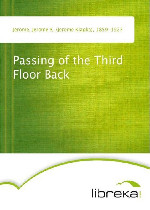
Passing of the Third Floor Back(三楼去又回) 立即阅读
The Passing of the Third Floor Back is a 1935 British drama film directed by Berthold Viertel and starring Conrad Veidt, Anna Lee, Rene Ray and Frank Cellier. The film is based on a 1908 play and short story by Jerome K. Jerome and depicts the various small-minded inhabitants of a building and the arrival of a stranger who works to redeem them. The work had previously been adapted into a 1918 film version by Herbert Brenon.
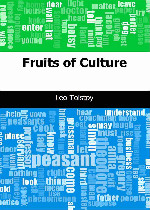
Fruits of Culture, aka The Fruits of Enlightenment, (1889-90, pub. 1891) is a play by the Russian writer Leo Tolstoy. It satirizes the persistence of unenlightened attitudes towards the peasants amongst the Russian landed aristocracy. In 1891 Constantin Stanislavski achieved success when he directed the play for his Society of Art and Literature organization.
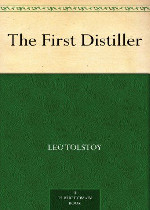
The First Distiller(托尔斯泰著戏剧) 立即阅读
CHARACTERS A PEASANT. { WIFE. HIS { MOTHER. { GRANDFATHER. { LITTLE DAUGHTER. A NEIGHBOUR. FOUR VILLAGE ELDERS. OLD WOMEN, WOMEN, GIRLS AND LADS. THE CHIEF OF THE DEVILS. HIS SECRETARY. A DANDY IMP. THE OFFICIALS' IMP. THE PEASANTS' IMP. SENTINELS, DOORKEEPERS AND IMPS.
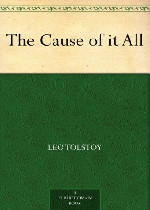
The Cause of it All(一切因由) 立即阅读
CHARACTERSAKULÍNA. An old woman of seventy, brisk, dignified, old-fashioned.MICHAEL. Her son, thirty-five years old, passionate, self-satisfied,vain and strong.MARTHA. Her daughter-in-law, a grumbler, speaks much and rapidly.PARÁSHKA. Ten years old, daughter of Martha and Michael.TARÁS. The village elder's assistant, speaks slowly and gives himselfairs.A TRAMP. Forty years old, restless, thin, speaks impressively; whendrunk is particularly free and easy.IGNÁT. Forty years old, a buffoon, merry and stupid.
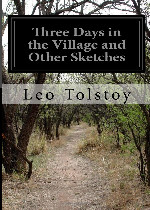
Three Days in the Village And Other Sketches(乡村三日) 立即阅读
Something entirely new, unseen and unheard-of formerly, has lately shown itself in our country districts. To our village, consisting of eighty homesteads, from half a dozen to a dozen cold, hungry, tattered tramps come every day, wanting a night's lodging. These people, ragged, half-naked, barefoot, often ill, and extremely dirty, come into the village and go to the village policeman. That they should not die in the street of hunger and exposure, he quarters them on the inhabitants of the village, regarding only the peasants as "inhabitants."
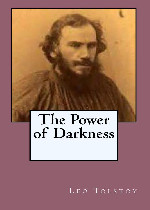
The Power of Darkness(黑暗的势力) 立即阅读
The Power of Darkness (Russian: Власть тьмы, Vlast' t'my) is a five-act drama by Leo Tolstoy. Written in 1886, the play's production was forbidden in Russia until 1902, mainly through the influence of Konstantin Pobedonostsev. In spite of the ban, the play was unofficially produced and read numerous times. The central character is a peasant, Nikita, who seduces and abandons a young orphan girl Marinka; then the lovely Anisija murders her own husband to marry Nikita.
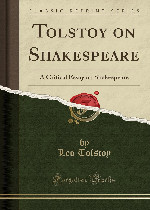
Tolstoy on Shakespeare(托尔斯泰论莎士比亚) 立即阅读
Mr. Crosby's article on Shakespeare's attitude toward the working classes suggested to me the idea of also expressing my own long-established opinion about the works of Shakespeare, in direct opposition, as it is, to that established in all the whole European world. Calling to mind all the struggle of doubt and self-deceit,—efforts to attune myself to Shakespeare—which I went through owing to my complete disagreement with this universal adulation, and, presuming that many have experienced and are experiencing the same...
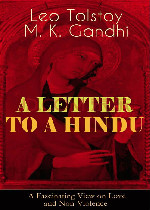
A Letter to a Hindu(给一个印度人的信) 立即阅读
"A Letter to a Hindu" (also known as "A Letter to a Hindoo") was a letter written by Leo Tolstoy to Tarak Nath Das on 14 December 1908. The letter was written in response to two letters sent by Das, seeking support from the famous Russian author and thinker for India's independence from British colonial rule. The letter was published in the Indian newspaper Free Hindustan. The letter caused the young Mohandas Gandhi to write to the world-famous Tolstoy to ask for advice and for permission to reprint the Letter in Gandhi's own South African newspaper, Indian Opinion, in 1909.
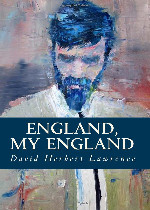
England, My England and Other Stories(英格兰,我的英格兰) 立即阅读
England, My England is a collection of short stories by D. H. Lawrence. Individual items were originally written between 1913 and 1921, many of them against the background of World War I. Most of these versions were placed in magazines or periodicals. Ten were later selected and extensively revised by Lawrence for the England, My England volume. This was published on 24 October 1922 by Thomas Seltzer in the US. The first UK edition was published by Martin Secker in 1924.
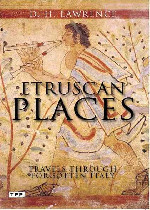
Etruscan Places(伊特鲁里亚的地方) 立即阅读
The Etruscan civilization, which flourished from the eight until the fifth centuries BC in what is now Tuscany, is one of the most fascinating and mysterious in history. An uninhibited, elemental people, the Etruscans enthralled D. H. Lawrence, who craved their "old wisdom," the secret of their vivacity and love of life. The exhilaration of Lawrence in his Etruscan adventures stands in stark contrast to his intimations of the darkness of Mussolini's Italy at a time when Europe was beginning its inexorable drift toward tragedy.